
John Weldon "J. J." Cale was an American guitarist, singer, and songwriter. Though he avoided the limelight, his influence as a musical artist has been acknowledged by figures such as Neil Young, Mark Knopfler, Waylon Jennings, and Eric Clapton, who described him as one of the most important artists in rock history. He is one of the originators of the Tulsa sound, a loose genre drawing on blues, rockabilly, country, and jazz.
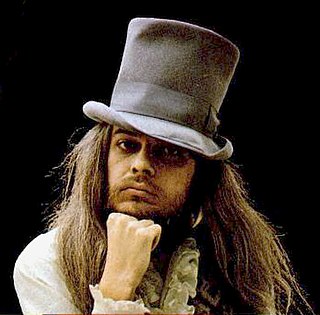
Leon Russell was an American musician and songwriter who was involved with numerous bestselling records during his 60-year career that spanned multiple genres, including rock and roll, country, gospel, bluegrass, rhythm and blues, southern rock, blues rock, folk, surf and the Tulsa sound. His recordings earned six gold records and he received two Grammy Awards from seven nominations. In 2011, he was inducted into both the Rock and Roll Hall of Fame and the Songwriters Hall of Fame.

Jubilation is the tenth and final studio album by Canadian/American rock group the Band. Recorded in the spring of 1998 in Levon Helm's home studio in Woodstock, New York, it was released on September 15, 1998. For the first time since the group reformed without guitarist and songwriter Robbie Robertson, there were more originals than covers. Songs include "Last Train to Memphis", featuring guest guitarist Eric Clapton, Garth Hudson's solo instrumental closer "French Girls", Rick Danko's "High Cotton" and the ode to Ronnie Hawkins, "White Cadillac".

Naturally is the debut studio album by J. J. Cale released on October 25, 1971.
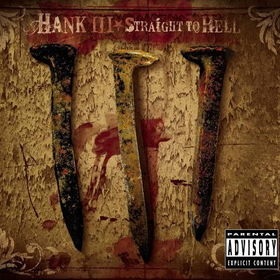
Straight to Hell is the third studio album by American musician Hank Williams III, released on February 28, 2006, by Bruc Records, an imprint of Curb Records.
"Pacific Ocean Blues" is a song written by Dennis Wilson and his cousin Mike Love. It was released as the ninth track on Dennis Wilson's 1977 first solo album Pacific Ocean Blue. The track, as with the rest of the album, was credited as having been produced by Wilson and his close friend Gregg Jakobson.

Put the "O" Back in Country is the debut studio album by American country rock artist Shooter Jennings. This album was released on March 1, 2005 on the Universal South label.

Really is the second studio album by J. J. Cale. It was released in 1972.
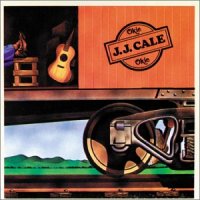
Okie is the third studio album by J. J. Cale, released in 1974.

Grasshopper is a 1982 album by J. J. Cale. It was his seventh studio album since his debut in 1971.
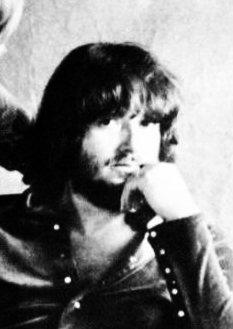
Delaine Alvin "Delaney" Bramlett was an American singer and guitarist. He was best known for his musical partnership with his wife Bonnie Bramlett in the band Delaney & Bonnie and Friends, which included a wide variety of other musicians, many of whom were successful in other contexts.

Shades is the sixth studio album by J. J. Cale, released in February 1981.
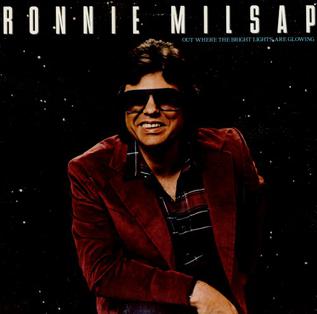
Out Where the Bright Lights Are Glowing is a studio album by American country music artist Ronnie Milsap, released in 1981 by RCA Records. The album produced one single, "Am I Losing You", which was a #1 hit for Milsap. The album is a tribute to the late Jim Reeves, and all songs are covers of Reeves songs, except for two new tunes, which were written about Reeves specifically for this project. The two new songs are "Out Where the Bright Lights are Glowing" and "Dear Friend".

Expando is the fifth studio album released by American musician Timothy B. Schmit. The album was released on October 20, 2009 on Lost Highway Records. It is Schmit's first studio album since 2001's Feed the Fire.
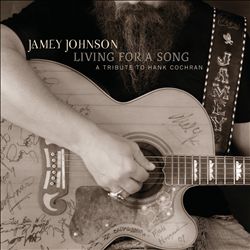
Living for a Song: A Tribute to Hank Cochran is the fourth studio album by American country music singer Jamey Johnson. It was released in October 2012 via Mercury Nashville on both compact disc and LP record. The album is a tribute to songwriter Hank Cochran.
Paradise Records was an American record label founded by Leon Russell in 1976 in Burbank, California.

Stop All That Jazz is an album by singer and songwriter Leon Russell. The album was recorded in 1974 at Russell's House Studio in Tulsa, Oklahoma; Paradise Studios in Tia Juana, Oklahoma; Pete's Place in Nashville, Tennessee; and Shelter The Church Studio, in Tulsa. Stop All That Jazz is Russell's sixth solo album.

Hank Wilson Vol. II is an album by singer and songwriter Leon Russell singing as Hank Wilson. The album was recorded in 1981 at Russell's Paradise Studios in Burbank, California. The album was produced by Russell.

Legend in My Time: Hank Wilson Vol. III is an album by singer and songwriter Leon Russell singing as Hank Wilson. The album was recorded in 1995. The album has classic country and bluegrass tunes and was produced by Leon Russell. CD was released by Ark 21 Records. The CD includes a 21-minute conversation between Russell and Harold Bradley about the songs on the album and stories they remembered.

Rhythm & Bluegrass: Hank Wilson, Vol. 4 is an album by singer and songwriter Leon Russell and the band New Grass Revival with Russell singing under the pseudonym Hank Wilson. Produced by Russell, the album was recorded in the 1980 but was not released until October 23, 2001. This is Russell's second album with New Grass Revival, who became his backup group and opening act in 1979.


















